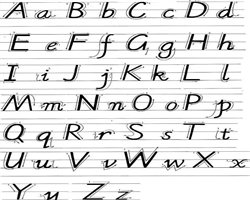主动表被动的常见情形
主动表被动的常见情形
(1) 连用动词用主动表被动:尤其是表示“……起来”的系动词,如sound(听起来), taste(吃起来), smell(闻起来), feel(摸起来), look, seem(看起来)等,尽管它在汉语意思含有被动意味,但英语却要用主动形式表示被动含义。如:
绸子摸起来柔软光滑。
误:Silk is felt soft and smooth. www.34en.com
正:Silk feels soft and smooth.
他并不像他看起来那么傻。
误:He is not such a fool as he is looked.
正:He is not such a fool as he looks.
(2) 某些不及动词用主动表被动:用作不及物动词的open, close, shut, read, write, translate, wash, clean, lock, sell, wear, cut, cook等,当主语是物,且因该事物本身具有某一固有特点使得谓语动词能以某种方式得以实现或难以实现时,用主动形式表示被动含义。如:
The book sells well. 这本书卖得不错。
The window won’t open. 窗子打不开了。
This shirt will wear very long. 这衬衫可以穿很久。
This cheese doesn’t cut easily. It’s too soft. 这乳酪不容易切,太软了。
(3) 关于let, blame:不定式to blame, to let等作表语时,用主动表示被动。如:
This house is to let. 此房出租。
Nobody is to blame for it. 谁也不该埋怨。
(4) 几个表示“需要”的动词:在表示“(某物)需要”的need, want, require等后的动名词用主动形式表示被动含义。如(www.MT56.com):
The house wants painting(= to be painted). 房子需要油漆了。
The floor requires washing(= to be washed). 地板该洗了。
(5) 关于be worth doing sth:在be worth后的动名词用主动表示被动。如:
His suggestion is worth considering. 他的建议值得考虑。
This clock is hardly worth repairing. 这个钟几乎不值得修了。
- 关键字:
- 上一篇: 主动语态变被动语态的易错点
- 下一篇:带双宾语动词的被动语态有何规律
友友评论:
内容相关随机推荐:
暂无相关信息!
- 相关链接:
-
资源说明:
英语语法网英语语法网-时态语态-《主动表被动的常见情形》
 。
。




